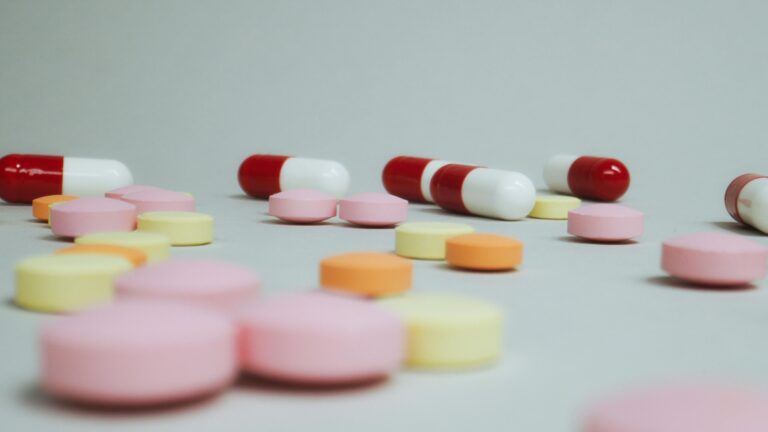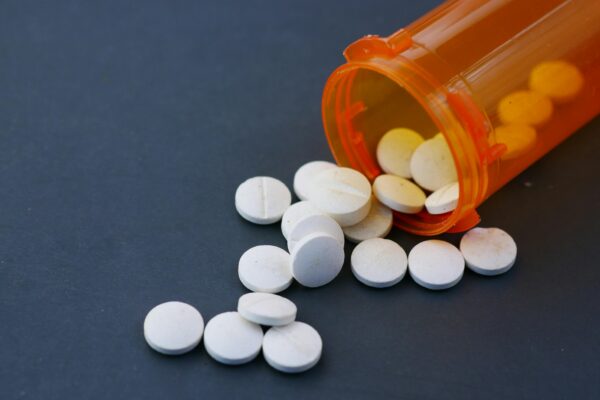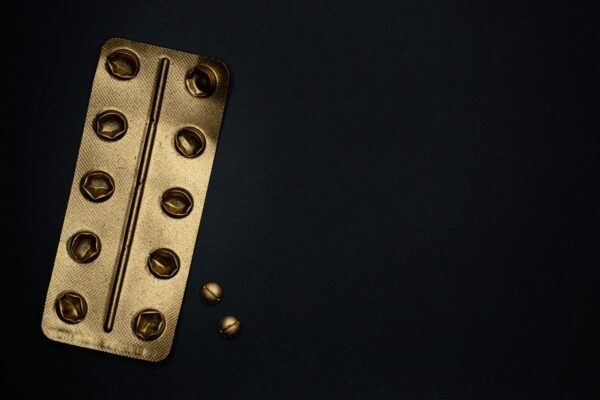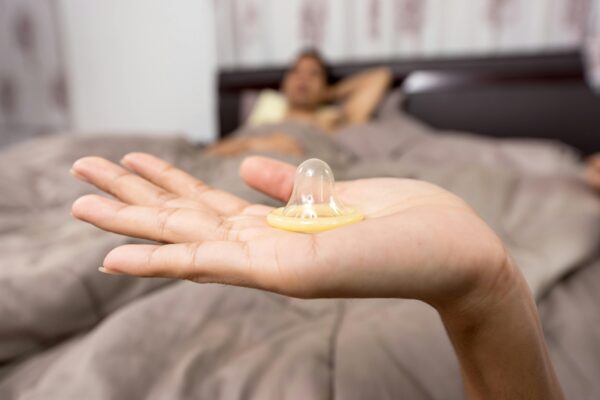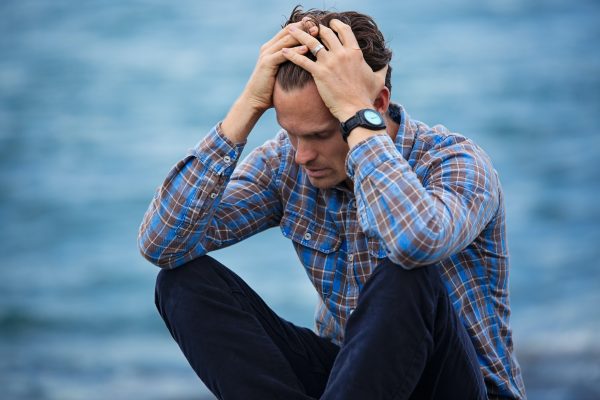Erectile dysfunction (ED) is one of those topics no man wants to discuss, yet it’s a reality for millions. When ED sneaks into your life, it can feel like an unwelcome guest that overstays its welcome. But what if this issue is tied to something unexpected, like the medication you’re taking? For men prescribed Doxepin—an antidepressant and anti-anxiety medication—this question looms large. Let’s unpack how Doxepin might affect your sexual health, what you can do about it, and how to regain control of your manhood.
- What Is Doxepin and How Does It Work?
- Can Doxepin Cause Erectile Dysfunction?
- Who Is Most at Risk?
- Signs That Doxepin Is Affecting Your Sexual Health
- What Can You Do About It?
- Natural Supplements to Consider
- Preventing Erectile Dysfunction While Taking Doxepin
- When to Seek Help
- Takeaway
- Studies, Sources, and Links
- FAQs: Doxepin and Erectile Dysfunction
- Question: Can Doxepin cause erectile dysfunction?
- Question: Why does Doxepin impact sexual performance?
- Question: What should I do if I experience erectile dysfunction while on Doxepin?
- Question: Are there alternatives to Doxepin that have fewer sexual side effects?
- Question: Can lifestyle changes help manage erectile dysfunction caused by Doxepin?
- Question: Can I take erectile dysfunction medications while on Doxepin?
- Question: Is erectile dysfunction caused by Doxepin reversible?
What Is Doxepin and How Does It Work?
Doxepin belongs to a class of drugs known as tricyclic antidepressants (TCAs). It’s commonly prescribed for conditions such as:
- Major depressive disorder
- Generalized anxiety disorder
- Insomnia
- Chronic pain
Doxepin works by influencing neurotransmitters like serotonin and norepinephrine in your brain. While this mechanism can stabilize mood and improve sleep, it may also have unintended consequences for your sexual function.
Can Doxepin Cause Erectile Dysfunction?
One of the unfortunate side effects of Doxepin is its potential to interfere with sexual performance. Erectile dysfunction, decreased libido, and delayed ejaculation are among the most reported sexual side effects of this medication. But why does this happen?
- Neurotransmitter Imbalance: Doxepin alters the balance of serotonin and norepinephrine, both of which play a role in sexual arousal and performance. Too much serotonin, for example, can suppress sexual desire and make it harder to achieve or maintain an erection.
- Hormonal Effects: Some studies suggest that TCAs like Doxepin can reduce testosterone levels indirectly. Lower testosterone is a key factor in diminished sexual function.
- Sedation and Fatigue: Doxepin is known for its sedative effects, which can lead to decreased energy and interest in sex.
- Vasodilation Issues: Erections require proper blood flow. Doxepin’s impact on vascular systems might contribute to reduced blood supply to the penis, leading to ED.
Who Is Most at Risk?
Not everyone taking Doxepin will experience erectile dysfunction, but certain factors increase the likelihood:
- Age: Men over 40 are naturally more prone to ED, and the risk may be compounded by medication.
- Dosage: Higher doses of Doxepin are more likely to produce side effects, including ED.
- Underlying Health Conditions: Conditions like diabetes, high blood pressure, or obesity can exacerbate the sexual side effects of Doxepin.
- Duration of Use: Long-term use of the drug increases the probability of sexual dysfunction.
Signs That Doxepin Is Affecting Your Sexual Health
If you’ve noticed a drop in your bedroom performance since starting Doxepin, keep an eye out for these signs:
- Difficulty achieving or maintaining an erection
- Decreased sexual desire
- Delayed or absent ejaculation
- Feelings of frustration or anxiety about sexual performance
These symptoms aren’t all in your head, and they shouldn’t be ignored.
What Can You Do About It?
Experiencing ED while on Doxepin doesn’t mean you’re stuck. Here are actionable steps you can take:
1. Talk to Your Doctor
Your healthcare provider is your first line of defense. Be open about the issue—it’s nothing to be ashamed of. They might adjust your medication dosage, switch you to a different antidepressant, or suggest supplements to mitigate the side effects.
2. Explore Alternative Medications
Not all antidepressants have the same impact on sexual health. Selective serotonin reuptake inhibitors (SSRIs), for example, are notorious for sexual side effects, but newer drugs like bupropion are often better tolerated.
3. Incorporate Lifestyle Changes
Improving your overall health can work wonders for your sexual function. Consider:
- Exercise: Regular physical activity boosts testosterone and improves blood circulation.
- Diet: A diet rich in whole foods, healthy fats, and lean proteins supports hormonal balance.
- Sleep: Proper rest is crucial for libido and erectile performance.
4. Use ED Medications
If needed, medications like sildenafil (Viagra) or tadalafil (Cialis) can provide short-term relief. However, always consult your doctor before combining these with Doxepin.
5. Address Underlying Stress
Stress and anxiety can worsen ED. Techniques like meditation, yoga, or cognitive behavioral therapy can help you manage these challenges.
Natural Supplements to Consider
If you’re looking for natural ways to enhance your sexual health, these supplements may help:
- L-Arginine: Promotes better blood flow, which is essential for erections.
- Maca Root: Known for its libido-boosting properties.
- Ginseng: A traditional remedy for improving sexual performance.
- Ashwagandha: Helps reduce stress, which can indirectly improve sexual function.
Preventing Erectile Dysfunction While Taking Doxepin
If you’re starting Doxepin or already taking it, these tips can help minimize the risk of ED:
- Start with a Low Dose: Always begin with the lowest effective dose and gradually increase if necessary.
- Monitor Side Effects: Keep track of any changes in your sexual health and report them to your doctor promptly.
- Stay Active: Regular exercise not only benefits your mood but also supports your sexual health.
- Limit Alcohol: Excessive drinking can exacerbate ED symptoms.
When to Seek Help
If ED persists despite making lifestyle changes or adjusting your medication, don’t hesitate to seek professional help. A urologist or endocrinologist can assess for underlying issues like low testosterone or vascular problems.
Takeaway
Doxepin can be a lifeline for managing depression, anxiety, or insomnia, but it may come with the unwanted side effect of erectile dysfunction. The good news? You don’t have to choose between your mental health and your sexual health. By working closely with your doctor, making lifestyle adjustments, and exploring alternative treatments, you can find a solution that works for both your mind and your manhood.
Remember, you’re not alone in this. Millions of men face similar challenges, and with the right approach, you can overcome this hurdle. So, take charge, make the changes you need, and get back to living life—and loving it—with confidence.
Studies, Sources, and Links
When it comes to understanding the effects of Doxepin and its potential impact on erectile dysfunction, evidence-based information is key. Below, we’ve compiled a list of studies and resources that offer deeper insights into this topic.
Studies and Research
- Impact of Antidepressants on Sexual Function
A comprehensive study published in The Journal of Clinical Psychiatry examined the sexual side effects of tricyclic antidepressants (including Doxepin). The study highlights that 30-50% of patients on TCAs experience some form of sexual dysfunction.
Source: The Journal of Clinical Psychiatry - Serotonin and Erectile Dysfunction
Research published in Psychopharmacology explores how serotonin modulation—central to Doxepin’s mechanism—affects sexual performance. It provides insights into why antidepressants may disrupt libido and erections.
Source: Psychopharmacology - Testosterone Levels and Antidepressant Use
A 2020 study in Hormone Research in Clinical Practice revealed that long-term antidepressant use could indirectly lower testosterone levels, exacerbating sexual dysfunction.
Source: Hormone Research in Clinical Practice - Exercise and Erectile Function
A study published in The American Journal of Medicine found that moderate physical activity significantly improved erectile performance, especially in men experiencing medication-induced ED.
Source: The American Journal of Medicine - Natural Supplements and Sexual Health
A review in The Journal of Sexual Medicine evaluated the efficacy of natural supplements like L-arginine, maca root, and ginseng in enhancing erectile performance.
Source: The Journal of Sexual Medicine
Trusted Health Resources
- Mayo Clinic
Detailed information about Doxepin’s side effects, including its impact on sexual function.
Link: Mayo Clinic – Doxepin - National Institute of Mental Health (NIMH)
Authoritative resource for understanding the broader implications of antidepressants.
Link: NIMH – Antidepressants - Cleveland Clinic
Comprehensive insights into erectile dysfunction causes and treatments.
Link: Cleveland Clinic – Erectile Dysfunction
Helpful Support Groups and Forums
- Drugs.com Community
Offers user experiences and discussions on managing side effects of medications like Doxepin.
Link: Drugs.com Forum - PsychCentral Forums
A supportive space to discuss mental health treatments and side effects.
Link: PsychCentral Forums - MensHealthForum.org
Dedicated to helping men navigate health challenges, including ED.
Link: Men’s Health Forum
Books and Publications
- “Male Sexual Health: An Evidence-Based Guide” by John P. Mulhall
A must-read for understanding how medications affect male sexual health.
Purchase Link: Amazon - “Antidepressants and Sexual Dysfunction” by Peter G. McKenna
A deep dive into the connection between antidepressants and ED.
Purchase Link: Goodreads
These resources will not only deepen your understanding but also empower you to make informed decisions about your health. Always consult your doctor before making any changes to your treatment plan.
FAQs: Doxepin and Erectile Dysfunction
Question: Can Doxepin cause erectile dysfunction?
Yes, Doxepin can cause erectile dysfunction as a potential side effect. It affects neurotransmitters like serotonin and norepinephrine, which can interfere with sexual performance, including reduced libido and difficulty maintaining erections.
Question: Why does Doxepin impact sexual performance?
Doxepin alters the balance of brain chemicals, such as serotonin, which can suppress sexual arousal. Additionally, its sedative effects and possible influence on testosterone levels may contribute to reduced sexual function.
Question: What should I do if I experience erectile dysfunction while on Doxepin?
If you notice erectile dysfunction while taking Doxepin, consult your doctor. They may adjust your dosage, switch you to an alternative medication, or recommend supplements and lifestyle changes to mitigate the issue.
Question: Are there alternatives to Doxepin that have fewer sexual side effects?
Yes, alternatives such as bupropion or newer antidepressants might have fewer sexual side effects. Discuss these options with your healthcare provider to find a medication that suits your needs.
Question: Can lifestyle changes help manage erectile dysfunction caused by Doxepin?
Yes, regular exercise, a healthy diet, stress management, and proper sleep can improve overall sexual health. These changes can also mitigate some of the side effects associated with Doxepin.
Question: Can I take erectile dysfunction medications while on Doxepin?
In many cases, ED medications like sildenafil (Viagra) or tadalafil (Cialis) can be used alongside Doxepin. However, always consult your doctor before combining medications to avoid potential interactions or risks.
Question: Is erectile dysfunction caused by Doxepin reversible?
In most cases, erectile dysfunction caused by Doxepin is reversible. Adjusting the medication or discontinuing it (under medical guidance) can often restore normal sexual function.
Disclaimer: This article is for informational purposes only and not a substitute for professional medical advice. Always consult your healthcare provider for guidance specific to your condition.

